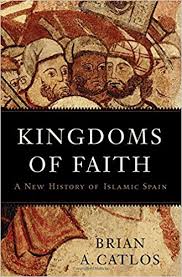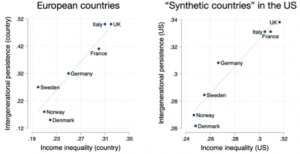I asked MJ to prepare a small discourse for my Cheti Chand Celebration. I wanted it to be on the survival of Hinduism through the ages, as Cheti Chand is precisely about that (in a Sindhi context).
I was rather offended by this lovely video (made by the Baha’is for Norouz). At 00:28 the man says (in rather over-flowery Persian, I feel the Farsi used here was far too ornate, trying to sound poetic without really achieving that) that Norouz was important for Baha’is but especially important for Persians.
Baha’i faith can never be a vehicle for Iranian Imperialism since the promise of our Faith is world encompassing (let your vision be world embracing) and it vindicated my decision to stop celebrating Norouz after marriage in favour of Cheti Chand.
I had a minor disagreement with a fellow Baha’i on this who is also Desi. I didn’t attend the community celebration over the weekend because I argued that as a religious, not cultural, holiday (and so close to Cheti Chand which is in 2 weeks) I would prefer to observe it in a more solemn manner.
He had initially suggested a Hindu-Baha’i dialogue, which I thought about but decided against. Hinduism is the oldest religion on earth and Baha’i Faith is the youngest; we have much to learn from them rather than the other way around.
At any rate MJ sent me his “controversial piece”, THE FAITH THAT NEVER FADES: THE HISTORICAL RESILIENCE OF HINDUISM.
The Holocaust brings to one’s mind deep anguish and pain, even though not many of us lived during the times when Hitler’s army ran riot over millions of Jews across Europe. It was one of the darkest hours of humanity and the barbarism of the Nazi cruelly added another chapter to the oppression that the Judaistic faith has had to face over the centuries.
What if I were to say that there is another faith (rather a `way of life’) and people who have undergone as many trial and tribulations, if not more, over millenia?
Shocking, right? I speak of Hinduism, arguably the oldest extant religion (not quite a religion though, as much as a way of life) today. Of Sanatan Dharma, or the ‘eternal way of life’ as it is usually called. The Vedic faith that developed and prospered in the Indian subcontinent before having to face wave after wave of slaughter, deprivation, insult and pain. This article is a brief walk down our civilizational memory lane to look at the story of what can be called one of the most ancient and pristine renditions of spiritual humanism, and what made it so resilient and strong to withstand these relentless storms of history.
It’s a wonderful article and his Nazi article is interesting. It reminds me of the German female presenter who said publicly that at least the Nazis brought autobahns (she was immediately fired and I can’t find the link).
It is interesting to note that there are no temples of significance in North India (the Sun Temple of Multan, Somnath) and it seems the initial Islamic conquests (Ghazni-Delhi Sultanate) were particularly destructive (was it more in line with the Turkish invasion or the Arab conquests is subject to debate).
My view is that the history of Islam in the Subcontinent is fundamentally problematic (it did not grow through conversions but was facilitate by evangelisation under the aegis of Muslim conquest). However while acknowledging that it doesn’t mean one should throw the baby out with the bathwater.
So it squares up nicely with my Islamophobia, Hinduphilia, Urdophilia and Hindiphobia.
I don’t think Islam or Hindi belong in polite society though I happily noted a hijabi women wearing a Burberry scarf this afternoon. If one is going to mar one’s looks with a hijab then at least wear a designer one. That’s why I don’t have much issue with Arabs wearing hijab since they do so with so much Elan than South Asian Muslims (they wear black hijab with a duskier skin tone- bad combination; I rarely see South Asian Muslim women wear the Hijab well, they seem to think enforced ugliness is a virtue).
As for Hindi’s vulgarity (it is probably as vulgar as Islam, if not more), this clip was just shocking:
https://www.facebook.com/watch/?v=2108525819438958
I cannot believe people talk like this. While the content is important, this sort of Hindi is crude and ugly that it lacks either the polish of Urdu or the flow of Hindustani. This is probably what they proudly call Hinglish (it’s really disturbing tbh) and then they threw in some Sanskrit word (Shahtruk or some such)..
I do feel Hindus have much misdirected rage instead of castigating, humiliating and abusing Islam at every opportunity as they should; they instead do so at Islamicate culture (and by extension the Islamicate state, Pakistan).
 Another BP Podcast is up. You can listen on Libsyn, iTunes, Spotify, and Stitcher. Probably the easiest way to keep up the podcast since we don’t have a regular schedule is to subscribe at one of the links above.
Another BP Podcast is up. You can listen on Libsyn, iTunes, Spotify, and Stitcher. Probably the easiest way to keep up the podcast since we don’t have a regular schedule is to subscribe at one of the links above.



